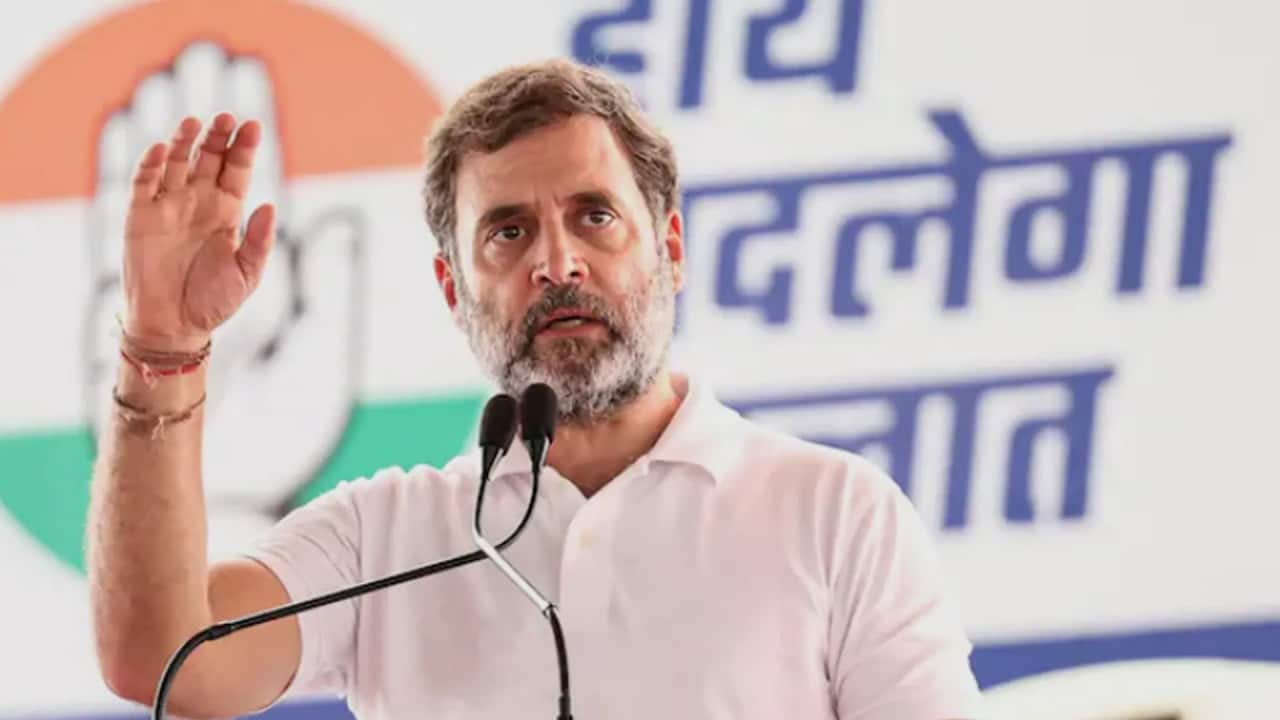 |
|
The recent political discourse in India has been significantly ignited by a strong statement made by Congress leader Rahul Gandhi, who leveled accusations of treason against RSS chief Mohan Bhagwat. This accusation stems from Bhagwat's assertion that India's true independence was achieved with the construction of the Ram Temple in Ayodhya, rather than in 1947 with the departure of the British. Gandhi's vehement response highlights a deep ideological chasm between the Congress party and the BJP-RSS alliance, exposing fundamental differences in their understanding of Indian history, nationhood, and the role of the Constitution. The controversy underscores the ongoing tension between secular and Hindutva ideologies in contemporary India, a conflict with significant implications for the nation's political landscape and future trajectory.
Bhagwat's statement, made during a public address, argued that while India gained political independence in 1947, true independence manifested only upon the completion of the Ram Temple. He suggested that the 1947 independence was merely political, while the Ram Temple represented a deeper, spiritual liberation. This interpretation has been met with widespread criticism, not only from the Congress party but also from various other political factions and civil society groups. Critics contend that Bhagwat's remarks trivialize the sacrifices made during the Indian freedom struggle, and that his statement undermines the historical significance of the Constitution and the democratic processes that have shaped modern India. The assertion has been viewed by many as an attempt to rewrite history and impose a narrow, sectarian narrative on the broader national consciousness.
Gandhi's response was immediate and forceful. He denounced Bhagwat's statement as treasonous, arguing that to deny the significance of 1947 independence is an insult to every Indian. He further escalated the rhetoric by declaring that the Congress party is not merely fighting a political battle against the BJP and RSS, but against the Indian state itself. This bold assertion suggests that the Congress perceives the current government as having captured and manipulated state institutions to serve its partisan interests, thereby undermining democratic norms and principles. This claim, while highly controversial, reflects a growing sense among opposition parties that the ruling dispensation is consolidating power in ways that threaten the very fabric of Indian democracy. The assertion that the 'Indian state' itself is the adversary elevates the conflict far beyond ordinary political disagreements, framing it as a battle for the soul of the nation.
The controversy surrounding Bhagwat's remarks and Gandhi's subsequent reaction has ignited a heated debate about the nature of Indian nationalism and the interpretation of historical events. The divergent interpretations of India's independence, the role of religion in national identity, and the legitimacy of the Constitution expose deep fractures within the Indian polity. The debate has transcended mere political maneuvering, delving into fundamental questions regarding the nation's identity, its past, and its future. The sharp exchange between Gandhi and Bhagwat has the potential to reshape the political discourse in the coming months and years, influencing electoral strategies, shaping public opinion, and potentially triggering further social and political unrest.
Beyond the immediate political fallout, this controversy raises crucial questions about historical narratives and their role in shaping national identities. The debate highlights the dangers of selectively interpreting historical events to promote particular ideologies. The contrasting views on the meaning of independence—one emphasizing the struggle against British colonialism, the other highlighting the significance of a religious site—reveal a complex and often contested understanding of Indian nationhood. The ramifications of this conflict extend far beyond the immediate political arena; it affects how Indian history is taught, how national symbols are interpreted, and ultimately, how Indians understand their place in the world. The long-term consequences of this clash of narratives are likely to be profound and far-reaching, impacting the very fabric of Indian society.
The accusations of treason and the counter-arguments have intensified the existing polarization in Indian society. The incident underscores the deep divisions within the nation, with differing views on history, religion, and the nature of the Indian state leading to significant political and social tension. The conflict serves as a stark reminder of the challenges facing India's democracy and the importance of maintaining a robust and inclusive public discourse, free from the constraints of partisan agendas and narrow ideological interpretations. Reconciling these divergent views will require a commitment to open dialogue, mutual understanding, and a willingness to engage with the complexities of Indian history and identity in a nuanced and respectful manner. The path forward necessitates a commitment to upholding democratic values and fostering a more tolerant and inclusive society.
